Buy X-Trant : Estramustine 140 Mg Capsules Online
$70.00
Brand Name: X-Trant
Generic Name: Estramustine
Manufacturer: Natco Pharma Ltd.
Strength: 140 mg
Form: Capsules
Packaging: Pack of 100 Capsules
Prescription Required: Yes
X-Trant is a medication used for the treatment of prostate cancer that has spread to other parts of the body. It is available in capsule form and contains the active ingredient estramustine. The medication works by blocking the growth and spread of cancer cells.
Composition:
Each capsule of X-Trant contains 140mg of estramustine as the active ingredient alongside lactose, magnesium stearate, and gelatin.
Uses:
X-Trant is primarily used to treat prostate cancer that has spread to other parts of the body. It is not intended for use as a cure for cancer but rather to slow down the growth and spread of cancer cells.
Usage and Dosage:
The recommended dosage for X-Trant is 560mg to 980mg daily, taken in divided doses. The medication should be taken with food, preferably at the same time each day. It is important not to exceed the recommended dosage. X-Trant should be taken as directed by your doctor.
Storage Conditions:
X-Trant should be stored at room temperature, away from heat and moisture. The capsules should be kept in the original packaging until ready for use.
Mechanism of Action:
X-Trant works by blocking the growth and spread of cancer cells. It is converted in the body to other compounds that interact with the DNA in cancer cells, preventing their growth and division. Additionally, X-Trant can affect the structure and function of microtubules in cancer cells, which play a role in cell division and growth.
Contraindications:
X-Trant should not be taken by women who are pregnant or breastfeeding. It should also not be taken by men who are allergic to estramustine or any of the other ingredients in the medication. Additionally, X-Trant should not be taken by men who have a history of blood clots or bleeding disorders.
Interactions:
X-Trant may interact with certain medications, including blood thinners, anti-inflammatory drugs, and some antibiotics. It is important to inform your doctor of all medications you are taking before starting treatment with X-Trant.
Side Effects:
Like all medications, X-Trant can cause side effects in some people. Common side effects include nausea, vomiting, diarrhea, and fatigue. More serious side effects may include blood clots, difficulty breathing, and chest pain. If you experience any of these side effects, contact your doctor immediately.
Be the first to review “Buy X-Trant : Estramustine 140 Mg Capsules Online” Cancel reply
Related products
Anti Cancer
Anti Cancer
Anti Cancer



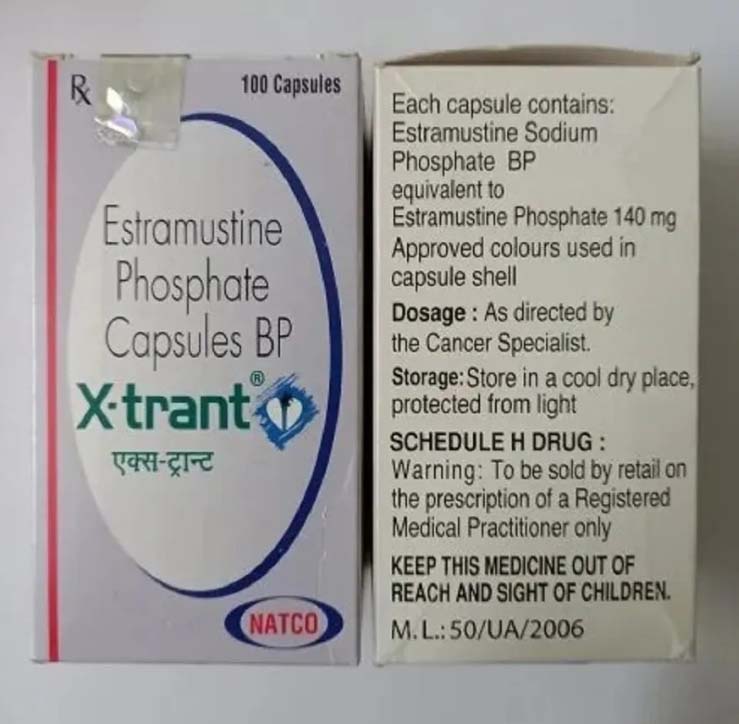
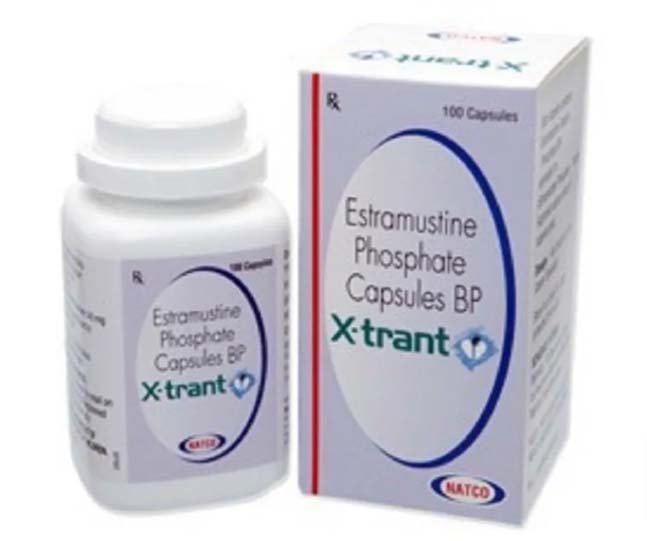

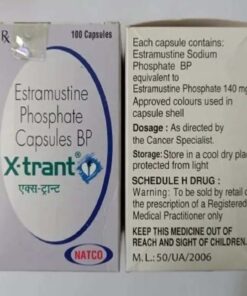
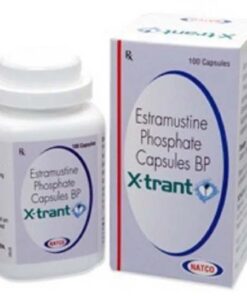
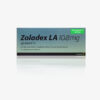
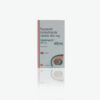
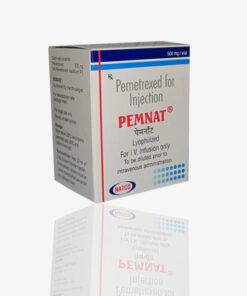

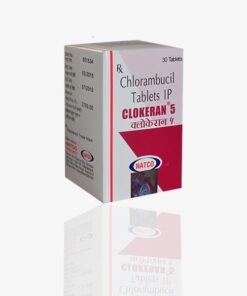



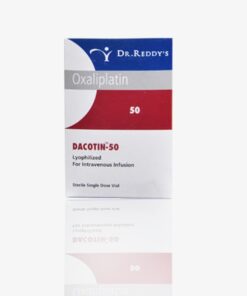
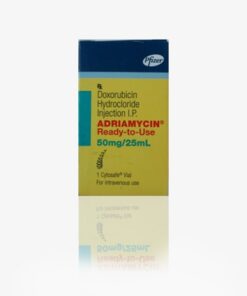
Reviews
There are no reviews yet.